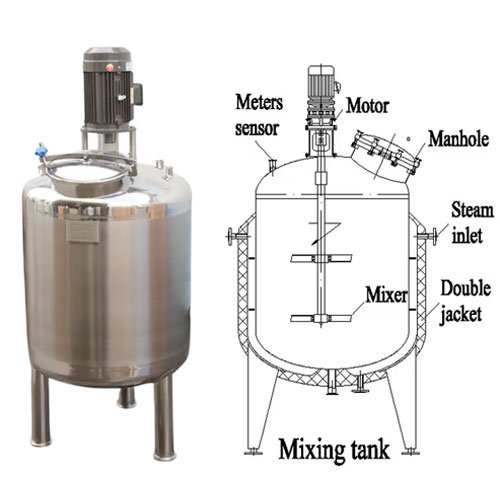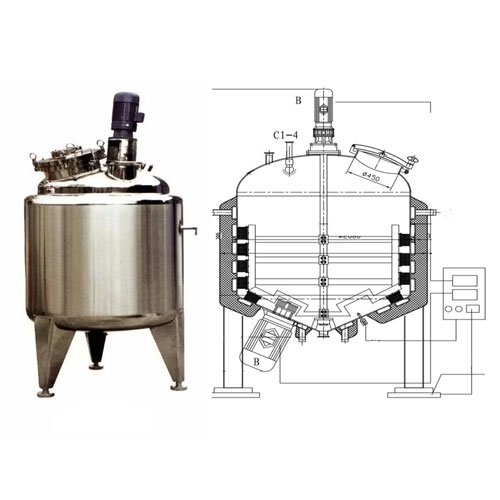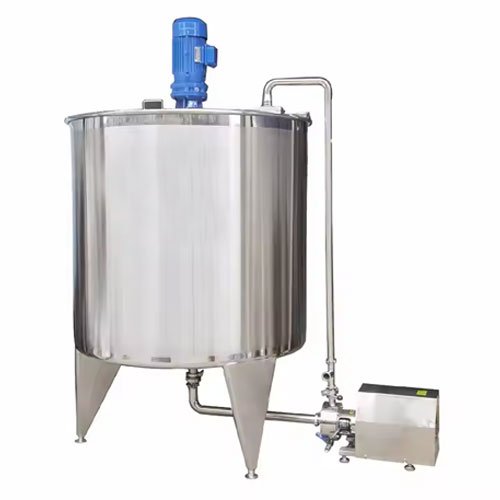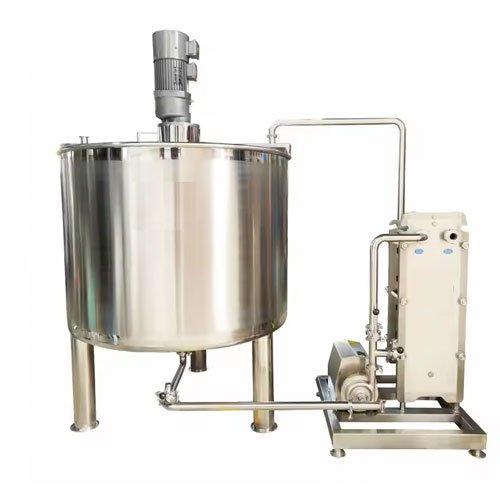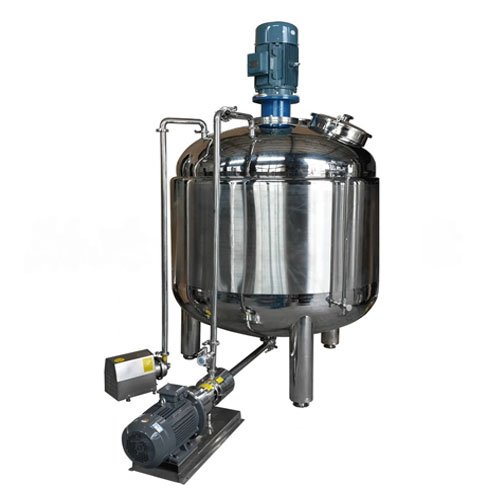TECHNICAL SPECIFICATIONS – SS JACKETED MIXING TANKS 10KL |
| Parameter | Specification |
| Capacity | 10,000 Liters (Total) / ~9,000 Liters Working Capacity |
| Type | Vertical, Cylindrical with Top & Bottom Dished Ends |
| Design Code | ASME Sec VIII Div 1 / IS 2825 / cGMP |
| Material of Construction (MOC) | Inner Shell: SS 316L, Jacket: SS 304 / SS 316, Outer Cladding: SS 304 |
| Jacket Type | Dimple Jacket / Limpet Coil / Plain Jacket (as per requirement) |
| Design Pressure – Shell | Atmospheric to 3 bar |
| Design Pressure – Jacket | Up to 6 bar |
| Design Temperature | -5°C to +150°C |
| Internal Surface Finish | Mirror Polish ≤ 0.4 μm Ra (Food/Pharma Grade) |
| External Finish | Matt / Mirror Finish |
| Welding Process | TIG Welding with Argon Purging |
| Agitator Type | Anchor with PTFE Scrapers / Paddle / Propeller / High-Shear Disperser |
| Agitator Speed | 10–100 RPM (Anchor) / up to 1500 RPM (High Shear) |
| Agitator Motor | TEFC / Flameproof Electric Motor, 5–15 HP (as per requirement) |
| Drive Type | Helical Gearbox / Worm Gearbox with Coupling |
| Sealing Type | Mechanical Seal (Double / Single) with Cooling |
| Insulation | Mineral Wool / Glass Wool (50–100 mm) |
| Cladding | SS 304 Sheet, Matt Finish |
| Top Nozzles | Manhole with Hinged Cover, Agitator Entry, CIP Spray Ball, Air Vent Filter, Pressure/Vacuum Relief Valve |
| Side Nozzles | Level Indicator / Sight Glass, Temperature Sensor Pocket |
| Bottom Nozzles | Drain Valve (Butterfly/Ball), Sampling Valve |
| Jacket Nozzles | Steam/Hot Water/Chilled Water Inlet & Outlet, Safety Relief Valve, Pressure Gauge |
| Instrumentation | Temperature Gauge / RTD Sensor, Pressure Gauge (Jacket), Level Sensor, Digital Temperature Controller |
| Heating/Cooling Medium | Steam, Hot Water, Chilled Water, or Glycol |
| Utilities Required | Steam: 150–200 kg/hr (Approx.), Electrical: 3–Phase, 415V, Compressed Air (if actuated valves used) |
| Testing | Hydrostatic Test (Shell & Jacket at 1.5 × Design Pressure) |
| Compliance | cGMP & FDA Compliant, MOC Test Certificates Provided |
| Optional Features | High Shear Emulsifier, Load Cell Weighing System, Vacuum Design, PLC |

